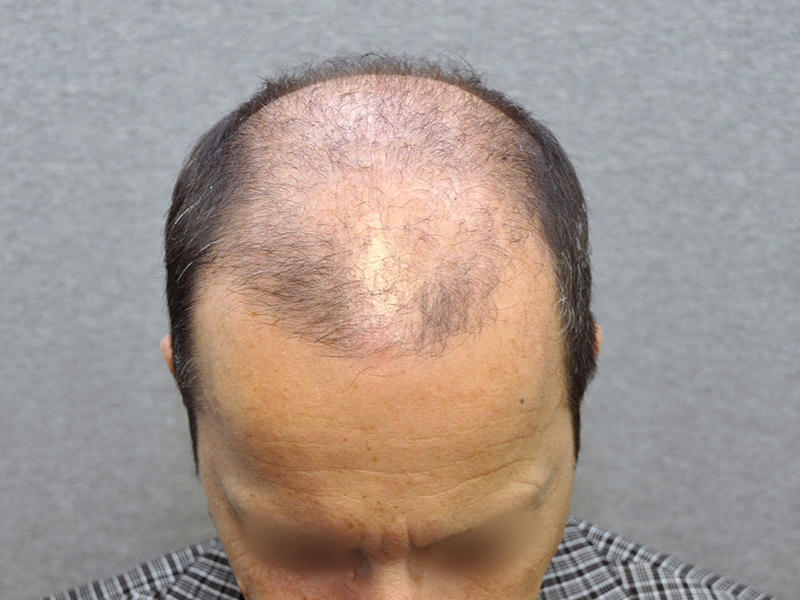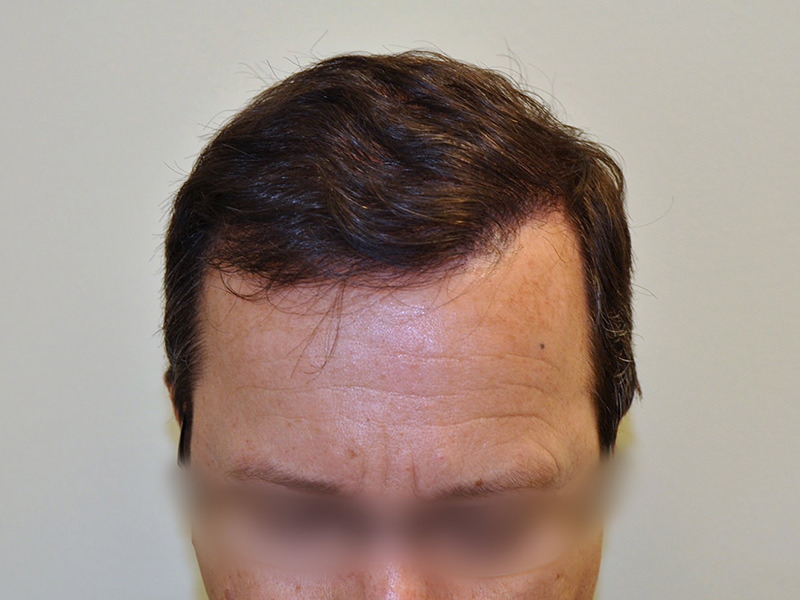
What Age Do Men Start Losing Hair?
A Comprehensive Guide for Male Hair Loss in Toronto.
Have you noticed your hair thinning lately and wondered, ” Am I getting old?” Believe it or not, hair loss, or alopecia, is common in men of all ages and can significantly impact self-esteem.
In this post, we’ll explore the average age of male hair loss and what you can do about it, including advanced solutions at the Toronto hair transplant clinic of Drs. Philip Solomon and Mark Korman.
What Causes Hair Loss?
The onset of hair loss depends on its type. Various factors can contribute to hair loss, including:
- Genetics/Androgenetic Alopecia: This type, known as male pattern baldness, is influenced by high levels of dihydrotestosterone (DHT), which affect sensitive hair follicles. Male pattern baldness accounts for 95% of hair loss in men.
- Traction Alopecia: Caused by prolonged tight hairstyles leading to scalp scarring and permanent hair loss.
- Alopecia Areata: An autoimmune condition causing sudden bald patches.
- Telogen Effluvium is a temporary condition triggered by stress, hormonal changes, or illness resulting in hair thinning.
- Trichotillomania: A compulsive disorder causing individuals to pull out their hair, damaging follicles over time.
- Nutritional Deficiencies: Poor diet and vitamin deficiencies, particularly Vitamin D, can lead to thinning hair.
- Certain Medications: Drugs for cancer, arthritis, heart problems, depression, and other conditions can contribute to hair loss.
- Radiation Therapy: Post-treatment hair growth may differ from before.
- Stress: Chronic or sudden physical/emotional shock can induce hair loss.
- Hormones: Imbalances can affect hair growth and loss, especially in women.
- Weight Loss: Significant, intentional, unintentional weight changes can trigger hair loss.
What Is the Average Age of Balding?
Hair loss varies from person to person, and there is no specific “normal” age. Hair thinning due to male pattern baldness is more common with age but can begin as early as the twenties. Here are some statistics:
- 25% of men start losing hair before age 21
- 66% of men experience hair loss by age 35
- 85% of men have significant hair thinning by age 50
Most men will experience hair loss at some point, ranging in severity from minor thinning to extensive baldness, depending on genetics, environment and age of onset. For a personalized assessment, consider consulting the Toronto hair transplant clinic of Drs. Philip Solomon and Mark Korman.
How Fast Does Hair Loss Progress?
Generally, it takes 15 to 25 years for men to go completely bald after noticing the first signs of hair loss, but some can lose their hair faster. Genetics and underlying causes play a considerable role.
Norwood Men’s Hair Loss Scale
The Hamilton-Norwood Scale helps classify male pattern baldness progression, which ranges across seven stages:
- Stage 1: Little to no hair loss
- Stage 2: Noticeable hairline recession
- Stage 3: Hair loss on the crown and deepening temporal areas
- Stage 4: Significant temporal and crown hair thinning, with a thick bridge of hair
- Stage 5: More pronounced frontal and temporal hair loss, reduced hair density
- Stage 6: Peach fuzz on the crown, front hairline joining with the balding crown area
- Stage 7: Only hair on the back and sides, forming a horseshoe pattern
Can You Prevent Hair Loss?
While genetic hair loss cannot be entirely prevented, you can take steps to minimize it and maintain healthy hair:
- Healthy Diet: Ensure sufficient vitamin intake and avoid low-calorie diets.
- Regular Exercise: Maintain a healthy lifestyle.
- Gentle Hair Care: Use a mild shampoo and moisturizing conditioner, and avoid breakage with leave-in conditioner treatments.
- Quit Smoking: Smoking can contribute to hair loss.
- Stress Management: Find healthy coping mechanisms.
- Avoid Harsh Treatments: Opt for professional salon treatments over DIY.
- Loose Hairstyles: Avoid tight hairstyles that pull on hair.
- Medical Consultation: Address underlying conditions contributing to hair loss.
- Limit Heat Styling: Avoid excessive use of hair dryers or straighteners.
- Scalp Massages: May stimulate hair growth.
What To Do If You Start Losing Hair
Even with preventive measures, hair loss can still occur. Here are some steps to take:
Please consult your doctor: They can determine whether your hair loss is genetic or due to other factors and suggest appropriate treatments, including Minoxidil and Finasteride.
Consult a hair restoration specialist: If you have permanent hair loss, consider a hair transplant at the Toronto hair transplant clinic of Drs. Philip Solomon and Mark Korman. Specialists can harvest hair from the back and sides of the scalp and transplant it into balding areas for permanent, natural-looking results.
At FOLLICLE HT, our experienced team, including Dr. Philip Solomon and Dr. Mark Korman, is dedicated to helping you understand and manage your hair loss effectively.
Book a consultation by visiting – What causes hair loss? or call us at – (905) 764-7799


